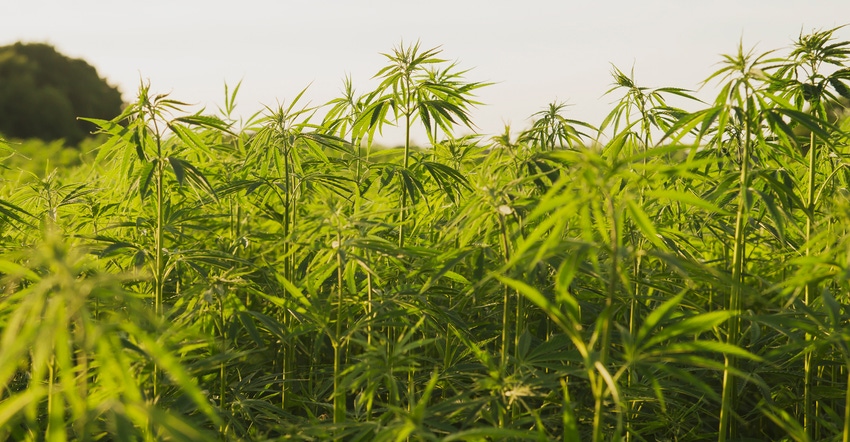
When Jon Hundley thinks of hemp, he thinks of a new frontier in farming.
“You have large, top-tier pros to people who are small, so it’s really hard to explain,” says Hundley, national marketing manager for hay and forage-hemp at New Holland. “It’s almost the wild, wild west.”
And this presents opportunities for New Holland to step in. The company has partnered with the National Hemp Association, a nonpartisan hemp advocacy group, on a new initiative, “Pushing Progress Together,” to help develop commercial-scale harvesting and other equipment for the growing hemp industry.
The companies visited farm shows in 2019 — including Farm Progress Show in Decatur — and are scheduled to visit more than a dozen this year, all with the goal of getting farmer and industry input on equipment needs for the hemp industry.
They are also pushing other industry partners to sign a “Hemp Pledge” to commit to purchasing hemp grown and processed in the U.S.
New Holland's fit for the hemp industry
Many of New Holland’s product offerings, including its forage harvesters and balers, are already being used on hemp operations, Hundley says, especially fiber hemp. But he sees the partnership as a way to provide education and thought leadership for the farming community.
So, don’t expect any big announcements on a new hemp combine or any other flashy equipment from New Holland in the near future. Hundley says the initial goal is to highlight the company’s existing equipment lineup and how it can fit the hemp industry.
One farmer in Oregon, for instance, is using the company’s coppice header, which was originally designed for biomass plantings such as willow, to harvest CBD hemp. The header, which has integrated saw blades that can slice plants up to 150 millimeters thick, can go through a hemp planting in one pass, he says.
The header guides plant stems into a feeder roll, taking up 99% of the plant in the process. You can view the video of the coppice header harvesting a CBD planting below.
Pennsylvania-based partnership
Erica Stark McBride, executive director of NHA, says the decision to partner with New Holland was two-fold: It’s one of the largest farm equipment manufacturers in the world, and New Holland was founded in Pennsylvania, where NHA is also based.
“We just feel like they are in the best position to find the solutions to break the bottlenecks of the supply chain that currently exist in the hemp industry,” she says.
While CBD is the predominant variety being grown on most farms, especially in Lancaster County, Stark McBride says that nationally the future of hemp is in fiber production.
“The hemp for fiber can be quite tall,” 15- to 20-feet-tall in some cases, she says, and most current farming equipment isn’t equipped to handle that.
Even though CBD plants tend to grow smaller, they are also tough to cut, she says, and this ends up putting lots of wear and tear on equipment with parts of the plant wrapping around rotating parts on the machine.
NHA was at the Pennsylvania Farm Show with a big exhibit detailing the history of hemp and the plants’ many uses. They also brought a BMW i3 car to highlight how hemp is being used to manufacture European cars. In this case, the door panels and the upholstery of the car were made of hemp materials.
This is normal in Europe, she says, as countries there are far ahead of the U.S. in terms of hemp for industrial use.
Part of the partnership with New Holland, Stark McBride says, is to push major manufacturers to incorporate hemp into their manufacturing processes, thereby building a demand for the crop.
Much of the fiber hemp being produced right now, she says, goes to pet litter and other things that aren’t as dependent on quality or volume as say the production of cars or even animal feed. This is where partnering with an ag equipment manufacturer is key, she says, because they can design equipment to produce large volumes and have the technical expertise to work with farmers.
As the hemp industry is still in its infancy, Hundley says it’s an opportunity for New Holland to get ahead of other equipment manufacturers.
“When it comes to something new like this, it's important to stand out and get ahead of the pack," he says. “I'm really excited about it, the brand is really excited about it.”
About the Author(s)
You May Also Like






